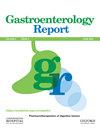中国结直肠癌 MLH1 启动子甲基化的检测区域选择和预后分析
IF 3.8
3区 医学
Q2 GASTROENTEROLOGY & HEPATOLOGY
引用次数: 0
摘要
背景 MLH1启动子甲基化分析被推荐用于筛查MLH1缺陷性结直肠癌(CRC)患者的林奇综合征(LS)。本研究旨在确定 MLH1 启动子中的特定甲基化区域,并评估 MLH1 甲基化患者的临床病理特征和预后。方法 共纳入 580 例 CRC 病例。采用免疫组化(IHC)方法评估DNA错配修复(MMR)蛋白的表达。使用亚硫酸氢盐测序 PCR 检测 MLH1 启动子中 A、B、C、D 和 E 区的甲基化状态。计算了五个区域的特异性。评估了 MLH1 甲基化与临床病理特征之间的关联。对总生存期(OS)进行卡普兰-梅耶分析。结果 在580例CRC病例中,D区和E区甲基化检测的特异性均为97.8%。在MLH1缺陷型CRC中,MLH1甲基化和BRAFV600E突变的频率分别为52.6%和14.6%;在MLH1甲基化型CRC患者中,27.7%发生了BRAFV600E突变。在MMR缺陷患者中,与MLH1未甲基化相比,MLH1甲基化在年龄≥50岁、女性、无LS相关肿瘤家族史、肿瘤位于右侧结肠的患者中更为常见。在MMR缺陷患者中,MLH1甲基化病例的OS率低于有LS相关肿瘤家族史的未甲基化病例(P = 0.047)。结论 在筛查MLH1缺陷型CRC的LS时,推荐使用MLH1启动子中的D区和E区来确定MLH1甲基化状态。在MMR缺陷患者中,MLH1甲基化病例的OS比有LS相关癌症家族史的未甲基化病例更差。本文章由计算机程序翻译,如有差异,请以英文原文为准。
Testing region selection and prognostic analysis of MLH1 promoter methylation in colorectal cancer in China
Background MLH1 promoter methylation analysis is recommended in screening for Lynch syndrome (LS) in patients with MLH1-deficient colorectal cancer (CRC). The study aims to identify specific methylation regions in the MLH1 promoter and to evaluate the clinicopathologic characteristics of and prognosis for patients with MLH1 methylation. Methods A total of 580 CRC cases were included. The DNA mismatch repair (MMR) protein expression was assessed by using immunohistochemistry (IHC). The methylation status of the Regions A, B, C, D, and E in the MLH1 promoter was tested by using bisulfite sequencing PCR. The specificities of the five regions were calculated. Associations between MLH1 methylation and clinicopathologic characteristics were evaluated. Kaplan–Meier analyses for overall survival (OS) were carried out. Results In 580 CRC cases, the specificities of the methylation test in Regions D and E were both 97.8%. In the MLH1-deficient CRCs, the frequencies of MLH1 methylation and BRAFV600E mutation were 52.6% and 14.6%, respectively; BRAFV600E mutation occurred in 27.7% of patients with MLH1-methylated CRC. In the MMR-deficient patients, compared with MLH1 unmethylation, MLH1 methylation was more common in patients who were aged ≥50 years, female, had no family history of LS-related tumors, and had tumors located at the right colon. In the MMR-deficient patients, the MLH1-methylated cases had lower OS rates than the unmethylated cases with a family history of LS-related tumors (P = 0.047). Conclusions Regions D and E in the MLH1 promoter are recommended for determining the MLH1 methylation status in screening for LS in MLH1-deficient CRC. In MMR-deficient patients, the MLH1-methylated cases had a worse OS than the unmethylated cases with a family history of LS-related cancer.
求助全文
通过发布文献求助,成功后即可免费获取论文全文。
去求助
来源期刊

Gastroenterology Report
Medicine-Gastroenterology
CiteScore
4.60
自引率
2.80%
发文量
63
审稿时长
8 weeks
期刊介绍:
Gastroenterology Report is an international fully open access (OA) online only journal, covering all areas related to gastrointestinal sciences, including studies of the alimentary tract, liver, biliary, pancreas, enteral nutrition and related fields. The journal aims to publish high quality research articles on both basic and clinical gastroenterology, authoritative reviews that bring together new advances in the field, as well as commentaries and highlight pieces that provide expert analysis of topical issues.
 求助内容:
求助内容: 应助结果提醒方式:
应助结果提醒方式:


